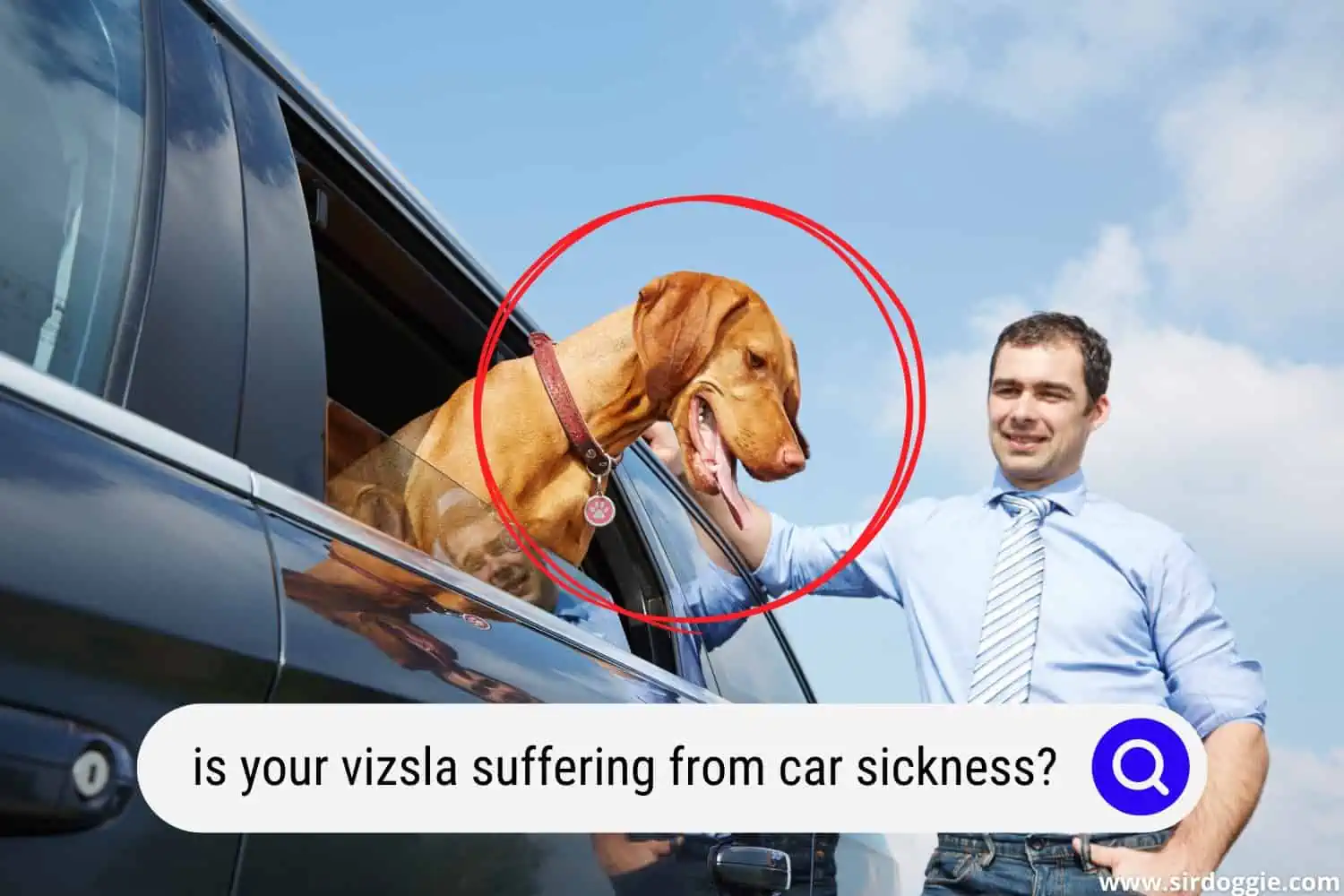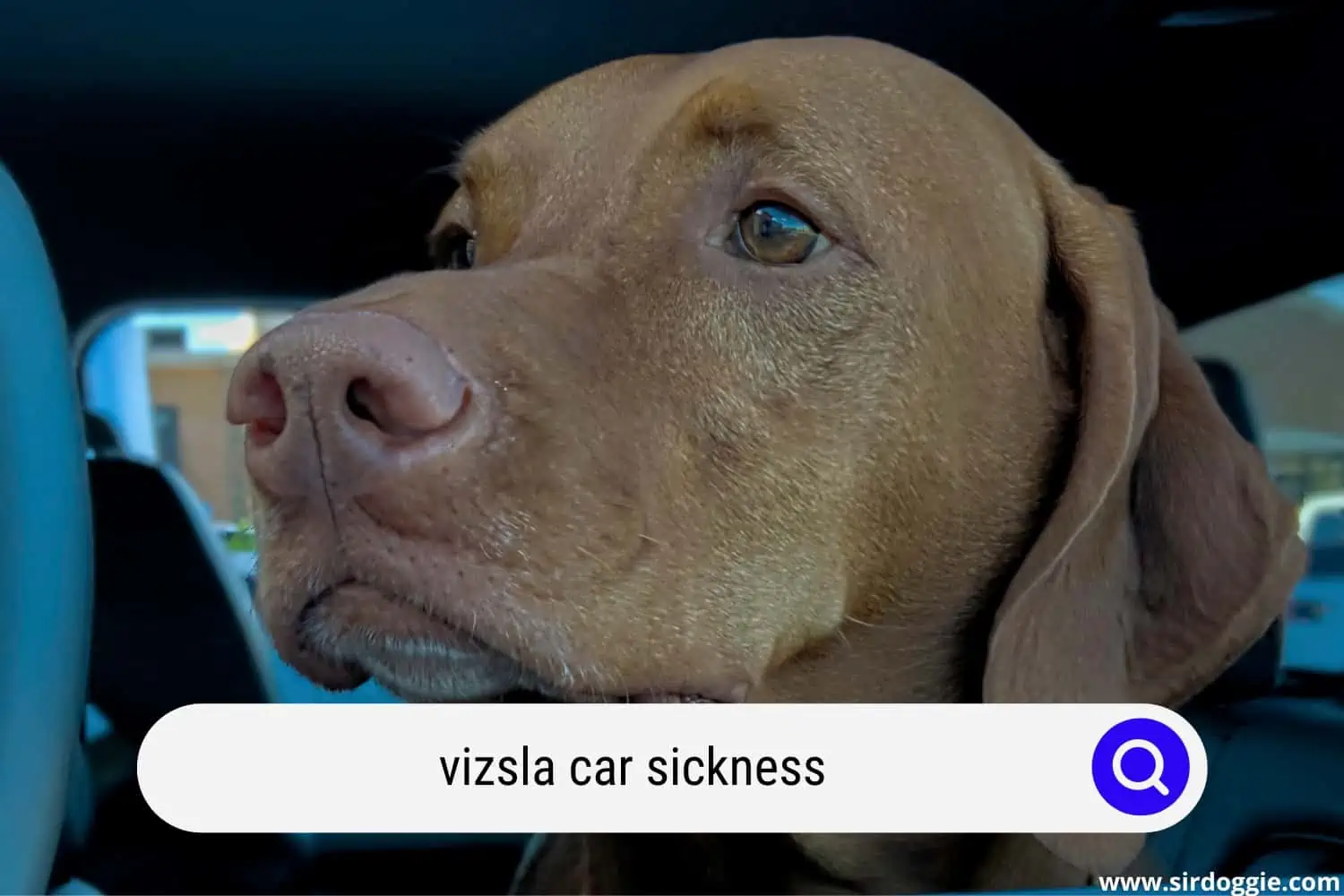Is Your Vizsla Suffering from Car Sickness?
Vizslas are incredible animals that present many characteristics that make them unique, among other breeds. Personality, behavior, and level of physical activity are just some of them.

These canines require daily exercise to maintain their physical condition at the highest level. The Vizslas are also characterized by being excellent hunter companions due to their skills in this activity.
Dogs of this breed are usually quite affectionate and friendly with any person or animal, especially their owners or members of their human family. In addition, they have a sensitive personality that can be easily affected if their loved ones do not show love. In fact, these dogs tend to suffer from anxiety when they feel lonely.
For that reason, the Vizslas need to carry out any activity accompanied by their owner or a member of their family, whether it be playing, taking a walk, or even going to another place with the car. The latter is very common since most people tend to take their dogs in the car as a tradition, considering that they like to feel the breeze when they stick their heads out of the window.
However, most dogs, including Vizslas, can suffer from car sickness, especially when they are not used to a car’s movement. These situations often occur when families with Vizslas move from one place to another, either within the same city or in another.
Below you can learn more about car sickness in Vizslas.
Vizsla Car Sickness
The first thing you should know is that car sickness is one of the types of motion sickness produced by movements when traveling from one place to another, in this case, with a car. This sickness can affect both animals and people, although it is very common in dogs since they are the animals that people usually carry in cars.
Car sickness occurs due to a sensory conflict that affects the vestibular system responsible for balance and movement. That means that any problem generated between the signals sent from the inner ear to the brain will cause car sickness.
This sensation can have a greater influence on Vizsla dogs due to the large ears and their developed hearing ability used during hunting activities. Therefore, if a Vizsla has a problem in its vestibular system, it will easily be affected by this sickness.
It should be noted that this can occur in Vizslas of any size and age, but it is more likely to occur in Vizslas puppies because their vestibular system is not fully developed.
The vestibular system is not the only cause of car sickness. Anxiety is another factor that affects our Vizslas, and any other dog, during the car trip. Therefore, it is important to know our pet’s current state before taking it with us in a vehicle.
Symptoms of Car Sickness in Vizslas
There are several symptoms that clearly indicate that our dog is experiencing this feeling of dizziness. Some of them are:
- Excess drooling and panting.
- Repeated yawning.
- Apathy.
- Vomiting
- Anxiety.
- Stress.
- Restlessness.
- Immobility.
- Lip Licking.

Prevention of Car Sickness in Vizslas
If you are thinking of traveling and want to take your pet with you, you must make sure that it is comfortable. Regardless of whether your Vizsla suffers from car sickness, you should take preventive measures to prevent your canine from feeling stress or anxiety in the car during the trip.
Whether you take your dog to the vet, on a walk, or on a trip, you have to guarantee the best comfort for it along the way. The following recommendations will help you prevent your Vizsla from suffering from car sickness:
- Train your Vizsla to get used to the movement of the car. You can do it by taking short trips with intermediate breaks. That way, your canine will gradually adapt to the vehicle’s natural movement and be less prone to car sickness.
- Bring your Vizsla’s favorite toy or object to keep it entertained and not stressed during the trip. In addition, the smell of your home in the toy will make your canine feel more secure.
- Keep the car windows open, so your Vizsla breathes fresh air, and the chances of it getting dizzy are lower. It is recommended that you turn off the air conditioning and allow your pet to receive as much fresh air as possible. If you allow your dog to stick its head out the window, make sure to put on protective goggles, so the strong breeze doesn’t dry out its eyes.
- Make sure that your dog feels in a pleasant and quiet environment inside the car. A lot of noise and agitation could cause the Vizsla to feel anxiety and stress, which is very harmful to its health.
- The type of vehicle is also another important factor when traveling with a Vizsla. The first thing you have to take into account is the size of your dog. If it is still a puppy, you can use an average size vehicle so that it has more space. However, adult Vizslas usually have a large size, and in these cases, it is recommended much larger cars so that your pet feels more comfortable.
- Try to make sure your Vizsla has not eaten just before the trip. It is proven that a dog with an empty stomach is less likely to get dizzy in the car. However, if you feel the need to feed it, do so well in advance to avoid stomach problems.
- If you go with a partner (friend, acquaintance, or family member) during the trip, make him (or her) distract the pet during the journey, preferably through a game. In this case, the toys and objects that we mentioned earlier acquire greater importance.
- Make frequent stops for air and a little walk with your canine. Dogs generally cannot stand long hours of travel, much less if they are immobile. Vizslas are very active dogs that need to move all the time, so taking breaks during the journey will prevent your dog from becoming hyperactive.

Family Dog Expert Author
Hi there! I’m Stuart, a devoted dog lover and family dog expert with over a decade of experience working with our furry companions. My passion for dogs drives me to share my knowledge and expertise, helping families build strong, loving bonds with their four-legged friends. When I’m not writing for SirDoggie, you’ll find me hiking, playing with my beautiful dog, or studying music.